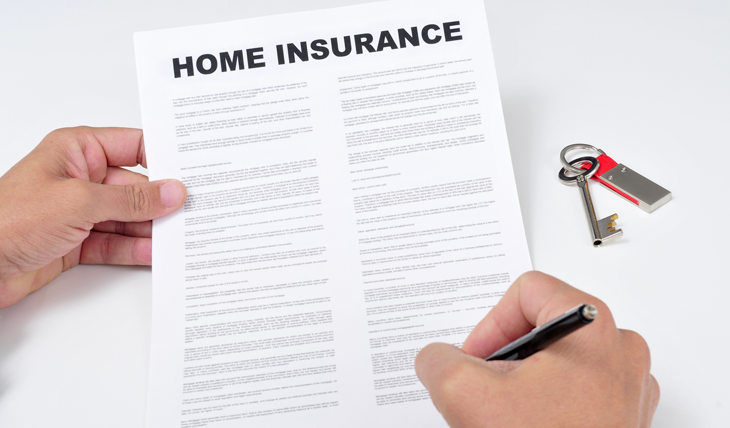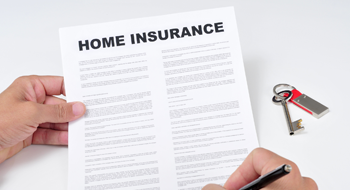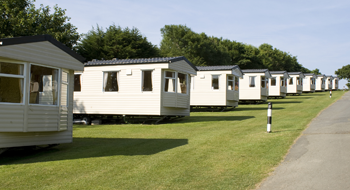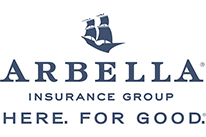
Whether it comes in the form of a letter following an application for a new job, an ominous beep from a credit card machine, or from a girlfriend or boyfriend with the claim of “it’s not you, it’s me”, rejection is never nice.
The wide range of feelings that can arise from such a fate may often conclude with a prompt to put it behind you and move on. However, for many people, this desire only tends to arise after a period of questioning with the main one being “why?”
People often can’t move on without knowing why they were rejected, even if it’s not personal – it feels personal.
This can even be the case even if the rejection comes from an insurance company – yes, an insurance company! That faceless corporate organization that you have no real personal connection with can have the audacity to decline to give you a quote. Alongside the feelings of annoyance, frustration, disappointment, or maybe even outrage, there will be the question of why they don’t want to give you a quote.
Besides the emotion involved, there are practicalities that need to be dealt with as being refused insurance can leave you in a precarious position. It will force you to seek out a specialist insurance company (read: more expensive premiums!) or self-insure, in which case it is impossible to predict the potential loss that could be suffered. Rejection can be even more of a worry when it has come following an application for a compulsory insurance type.
Even the best home insurance companies will have some risks that fall within their exclusions section and, similarly, they will have a range of issues that will act as a red flag for them and make them err on the side of caution. However, if you understand the reasons why insurers do the things they do, you will be better placed to know how to respond.
Are you ready for a revelation? Insurers don’t like to lose money. Shocking, right? Maybe this plays a part in why insurance companies have a bad reputation, but who knows…
Anyway, insurance companies spend much time and effort on calculating the potential of a risk occurring, which is what they engage actuaries to do. Insurance is big business and highly profitable, which is not going to remain the case if they provide coverage to just anybody – they want to know what they’re getting into.
If you live close to a body of water, you probably consider yourself quite lucky. Anything from the smallest stream to the largest ocean will offer you a reprieve from the hustle of urban life that can make you think of your home as a little special. However, insurers might consider your home special for an entirely different reason.
Even if you have never had an issue with water ingress into your home, many insurers will still not want to take the risk. Accordingly, they may decline to provide you with a quote, so you may not be able to get the best home insurance for your needs.
In this situation, there may be other factors that can make an insurer wary of providing a quote, such as subsidence or sinkholes, which may result from being close to water.
We would all love to be able to simply get into a car and drive. Whether for the purpose of work or play, having the freedom to be able to use your car in this way is the ultimate desire. However, there are a few necessary steps that you must complete before being able to get behind the wheel. Part of this process will be getting suitable car insurance, which can be difficult in certain circumstances.
Having a classic or high-end car can make it difficult to get coverage from a standard insurance company, or you may find yourself only being quoted very high premium rates. This is due to the potential loss being higher than average.
This would also be something that is quite familiar to parents of children who have successfully obtained their permits. The next step will be to add them to an existing car insurance policy , which is not exactly going to get you a discount! It may be galling, but there is a method to the madness when it comes to a new driver as they have less experience on the road and are more likely to have an accident.
People who drive for a living or do a lot of driving for their job may find themselves only being offered excessively high quotes, which can be almost as bad as a declinature when the premium is outside your budget. It stands to reason that the longer you are on the road, the greater the possibility of being involved in an accident.
Trees are great, aren’t they? They provide shade, sometimes things you can eat, clean the air, provide homes for squirrels and birds, and add a touch of green to gray urban streets. It is easy to recognize all of these positives by simply looking at trees, but this makes it easy to forget about what is going on beneath the surface – and there is a lot going on beneath the surface.
In order for all of the visible aspects of a tree to be made possible, it is necessary for it to have good roots. These big strong roots anchor the tree to the ground and help feed and nourish it. As part of this process they will spread out and take up space even where there is none – they will make space. In order to do this, they will force the movement of most things in their way, including the foundations of a house.
When there is a risk of ground movement and damage to foundations, even the best home insurance company will think twice before providing a homeowner’s insurance quote for a property that has trees close to its boundary.
Having a roof over your head should be a given, but it can often seem more like a privilege and one that helps you feel secure. You can close your door and feel protected against the elements and people with bad intentions, but others may not see it this way.
Of course, the “others” we’re referring to are insurance companies. They don’t love your home as you do, they don’t care how you feel about it, they just need to be satisfied that it is the type of property that they are prepared to cover.
n the event that you live in a property that could be considered susceptible to an insured risk, an insurance company would be less likely to provide you with a quote. For example, a property that is in a poor state of repair at the intended inception date of a homeowner’s policy is not likely to be given a quote from even the best insurance company; this is a given and many would expect it.
People that own other types of property may be surprised at not being able to easily get a quote as they think it is perfectly insurable. However, insurers may not see it this way. Properties that are made from non-standard materials can make insurance companies nervous as they may present a greater risk. For example, properties mainly constructed from timber or which comprise thatched roofs may be more likely to suffer fires, which will increase the potential loss to an insurer if they provide coverage.
Rejection is powerful. It can cause self-examination, self-loathing, panic, embarrassment, anxiety, even hate. However, you don’t need to let it get that serious when you know what you are dealing with.
At least with an insurance company, you can console yourself with the knowledge that it is not personal and that there are other steps you can take, such as in the form of making changes or using specialist insurance companies (with whom we have close relationships).
Fortunately, you can get Econosurance on your side to help you with your insurance matters so there is no need to panic. We have the expertise to be able to get you the coverage you need even if you have circumstances that an insurance company may consider non-standard. Call us on 800-335-0633 and tell us what you need.

Mobile Home Insurance: An In-Depth Coverage Guide
If you own a mobile home, several threats could affect your house more severely than a traditional house. For example, many people have heard about the devastation a tornado can cause in mobile home camps.

What Is a Home Insurance Deductible?
5.1% of insured homes in the United States had a home insurance claim in 2019, according to ISO. Nearly all of these claims were due to property damage, including theft, which amounted to 97.2% of claims. The remaining 2.8% of claims were liability losses.

5 Tips for Choosing the Right Home Insurance Companies for You
Homeowners insurance isn't on most people's minds until they experience damages, a disaster, or someone gets injured on their property. Only about 85% of homeowners have insured their homes.




